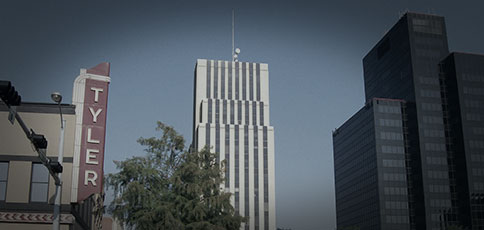
Since 1996, hundreds of thousands of patients have taken Elmiron (pentosan polysulfate sodium), a prescription medication for chronic bladder pain due to interstitial cystitis (IC). As the only medication the U.S. Food and Drug Administration (FDA) has approved for the condition, it has been the main treatment method for nearly three decades.
Recent studies have exposed dangerous side effects after long-term Elmiron use. Specifically, some patients report eye damage (maculopathy) that affects their ability to focus and read text. Since these issues have come to light, some individuals have taken legal action against Janssen Pharmaceuticals, the drug’s manufacturer. They claim Elmiron’s side effects have affected their eyesight. No settlements have been reached as of May 2022. Here is what we know so far.
Elmiron Settlement Statistics
Over the past few years, multiple studies indicate that patients who took high Elmiron doses for long periods were at higher risk of maculopathy than patients who did not take the medication.
A 2019 study in the British Journal of Ophthalmology reported that about 25% of patients who took an average of 5,000 pills over 15 years experienced serious damage to the macula, the part of the retina that allows the eye to focus. A Kaiser Permanente study showed similar results. Patients in both studies were more likely to show signs of this atypical maculopathy as the dosage increased.
In addition, a limited American Academy of Ophthalmology study found that four out of six patients who had taken Elmiron over a median range of 186 months had noticeable difficulty reading. As of May 16, 2022, there were 1,061 lawsuits filed against Elmiron in New Jersey Multidistrict Litigation (MDL). The lawsuits allege that the manufacturer of Elmiron knew about the potential risks to patient health but failed to notify patients.
If you or someone you love has experienced vision loss or eye damage after taking Elmiron, you may be able to sue Janssen Pharmaceuticals. The defective drug attorneys at Loncar Lyon Jenkins can review your evidence and determine if you can move forward with a lawsuit.

800-285-HURT (4878)Available 24/7 | 356 Days | se habla español
What Is Elmiron?
Elmiron, or pentosan polysulfate sodium (PPS), is a drug Janssen Pharmaceuticals developed for patients with interstitial cystitis (IC). According to the National Institute of Diabetes and Digestive and Kidney Diseases (NIDDK), as many as 12 million people in the U.S. suffer from IC.
Elmiron is the only drug on the market that medical professionals use to treat IC. The standard treatment for IC is 100 mg of Elmiron three times per day. Long-term use is common, as many patients do not see improvements until months later. In some cases, patients are prescribed higher doses for acute IC problems and may take the drug continuously for more than 10 years.
Signs of Eye Damage Caused by Elmiron
Since the FDA approved Elmiron on September 26, 1996, thousands of patients have used it to treat IC. After decades of use, some have experienced the following symptoms and conditions:
- Blurred or dull vision
- Straight lines look curvy
- Spots or black dots blocking vision
- Difficulty adjusting to the darkness
- Reduced peripheral vision
- Macular degeneration
- Maculopathy, both pigmentary and retinal
- Vision loss in one or both eyes
If you or a loved one suffers from any of the above injuries after taking Elmiron for IC, you may be able to file a lawsuit to seek compensation for your losses. You can contact an Elmiron lawsuit attorney at Loncar Lyon Jenkins to learn more.

800-285-HURT (4878)Available 24/7 | 356 Days | se habla español
Losses You Can Claim in an Elmiron Lawsuit
If you have experienced macular damage, vision loss, or blindness after taking Elmiron, you could claim the following damages:
- Lost income or reduced income
- Medical expenses
- Medical devices and equipment
- Emotional and mental anguish
- Pain and suffering
You can speak with our dangerous drugs attorney who has experience handling dangerous drug cases. We can review your situation and tell you more about the specific damages you can claim in your Elmiron lawsuit.
How Our Attorney Can Help With Your Elmiron Eye Damage Lawsuit
If you have taken Elmiron daily for longer than six months as prescribed by your doctor, and you have any of the above conditions, you may be eligible to file a lawsuit against Elmiron for eye damage. Our attorney, who handles mass torts drug defects cases, can compile the evidence needed to establish fault and support your claim.
For three decades, Loncar Lyon Jenkins has represented clients in a wide range of injury cases, from car accidents to dangerous drugs. Our defective drug attorneys firmly believe that big drug companies should be held accountable for their negligent or careless actions. For our Elmiron injury clients, this means fighting for fair compensation for their losses.
Our dedicated legal team will:
- Examine the evidence and obtain documentation that establishes a link between your Elmiron use and vision loss
- Collect adverse event reports, scientific studies, and other documents to prove Janssen Pharmaceuticals is aware of the issue
- Obtain expert testimony and records from medical professionals to establish the extent of your injuries and how they affect your quality of life
- Stay up to date on developments in Elmiron litigation and advise you on your claim accordingly
- Provide you with legal advice about the injury claim that works best for your situation
- Answer your questions and protect your rights and interests
Contact Loncar Lyon Jenkins to Learn How You Can File an Elmiron Lawsuit
Loncar Lyon Jenkins’ injury attorneys defend the rights of injury victims in mass torts cases against some of the largest companies in the world, including massive pharmaceutical companies. If you or a loved one have suffered vision damage after taking Elmiron, you deserve the chance to claim compensation for your losses.
Contact us for a free case evaluation to help you determine how to move forward on an Elmiron claim. If we take your case, we will do so on a contingency basis, which means you will not pay us any money unless we win your case.














